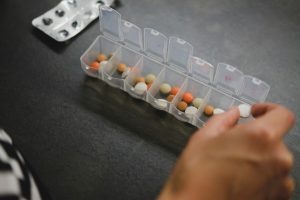Feb 20,2024

Hidradenitis Suppurativa (HS) is a chronic inflammatory skin condition marked by painful nodules, abscesses, and scarring, primarily affecting areas with apocrine sweat glands. For years, managing HS has been a challenge due to its complex pathogenesis and variable patient response to treatment. However, recent advancements in medication have provided new hope for individuals suffering from this debilitating condition. Dr. Som is dedicated to incorporating the latest and most effective treatments for HS into his practice. This blog explores recent breakthroughs in HS medication, their efficacy, and patient experiences, shedding light on the promising horizon of HS management.
The landscape of HS treatment has seen significant developments, with a focus on targeting the underlying inflammation and immune response associated with the condition.
Clinical trials and real-world studies have underscored the effectiveness of these advanced treatments. Patients receiving biologic therapies, for instance, have reported significant reductions in flare-ups, pain, and the size of nodules, with some achieving complete remission. Antibiotic combinations have shown success in managing acute flares and reducing bacterial colonization, while hormonal therapies have been beneficial for those with flare-ups linked to menstrual cycles or polycystic ovary syndrome (PCOS).
HS is highly variable in its presentation and severity, making personalized treatment plans essential. Dr. Som emphasizes the importance of a comprehensive evaluation to tailor treatment options to each patient’s specific condition, lifestyle, and treatment goals. This individualized approach ensures the highest chance of treatment success and patient satisfaction.
While dermatologists traditionally manage HS, consulting a plastic surgeon like Dr. Som can offer additional benefits. Plastic surgeons can provide surgical interventions for severe cases, such as excision of affected areas or reconstructive surgery to repair extensive scarring. Moreover, they can collaborate with dermatologists to offer a multidisciplinary approach to HS management, combining medical therapy with surgical solutions for optimal outcomes.
If you or someone you know is struggling with Hidradenitis Suppurativa, breakthroughs in medication and treatment strategies offer new hope for effective management and improved quality of life. However, navigating these options can be overwhelming without expert guidance. To explore advanced treatment options and take the first step toward better managing your HS, book a consultation with Dr. Som today. Together, you can chart a path forward in your HS journey, armed with the latest advancements in HS medication and care.